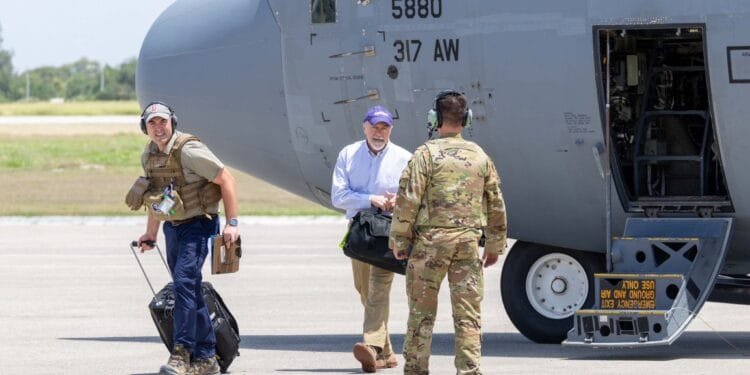The arrival of the new U.S. Ambassador to Haiti, Henry T. Wooster, on June 14, 2025, will not go unnoticed. His military-style trousers, deliberately worn, are far more than a sartorial detail. They are a powerful symbol, an unequivocal message to a country engulfed in deadly chaos.
This visual choice strongly underscores the man’s background—an experienced former military officer who has served in complex theaters like Iraq, Pakistan, Georgia, and Haiti itself—and aligns perfectly with the embassy’s stated priority: “Restoring stability will be his focus.”
This profile, combined with the simultaneous announcement of a U.S. “whole-of-government approach,” undeniably suggests a potentially more robust and security-focused involvement from Washington in the Haitian crisis.
The recurring U.S. officials’ labeling of armed gangs as “terrorists” reinforces this direction. While this approach addresses a glaring security emergency, it raises legitimate questions about future U.S. policy:
What will be the exact nature of this “whole-of-government approach”? Does it primarily involve strengthening logistical and intelligence support for the Haitian National Police (PNH), or does it foreshadow more direct, less visible engagements in the fight against gangs? Will this security focus, as necessary as it may be, be sufficient? Can it address the deep-rooted causes of the crisis: the failure of the state, endemic corruption, extreme poverty, and the despair that fuels the ranks of the gangs?
Wooster’s appointment also unintentionally recalls the legitimate bitterness of the Haitian people toward the lack of tangible support from their international “friends.”
Declarations of solidarity and repeated condemnations of violence remain hollow as long as the foreign origin of the vast majority of weapons devastating the country is not seriously addressed.
📲 Don’t miss anything with Hebdo24
Receive our latest news directly
on your phone via our official WhatsApp channel.
Join the Hebdo24 WhatsApp channel













Discussion about this post